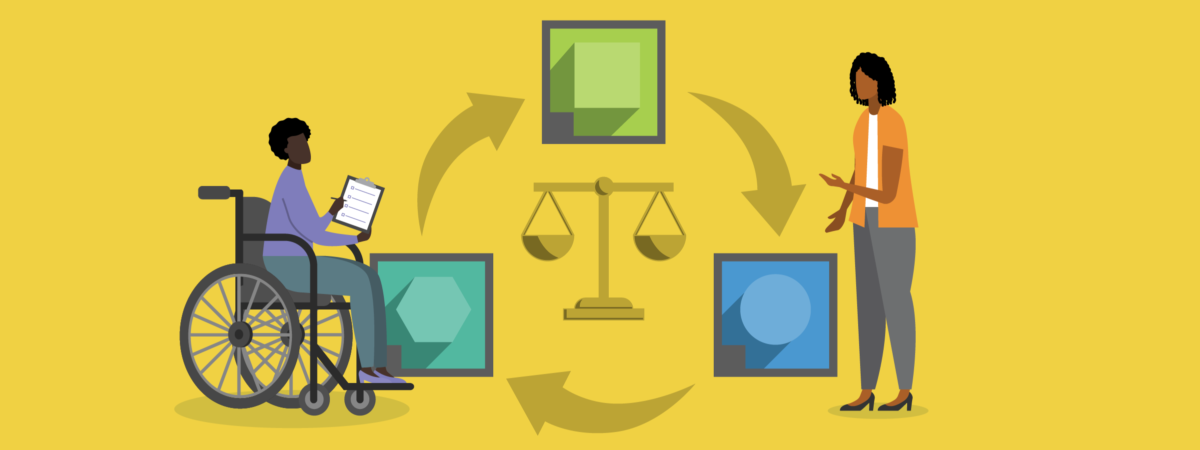The micro-credentialing field is ever shifting and changing – a characteristic that has made it ideal for innovation. The pandemic has demanded a high level of adaptability in education that micro-credentials can support. To support educators in accessing quality and relevant professional learning tools at the beginning of the pandemic, we curated
a list of micro-credentials that could be earned with a remote or hybrid classroom. As the pandemic continued, engagement with micro-credentials exponentially increased, as did the need to ensure that our micro-credential library reflected the goals and needs of the field.
High quality standards have always been a cornerstone of our micro-credential framework and content development process. We believe that high quality must also mean accessible and equitable. We have always conducted annual reviews of our micro-credential work, but Digital Promise’s journey over the past years to articulate our priorities and deepen our commitment to educational equity prompted our team to begin a longer reflection last year to audit our micro-credential content for alignment with our vision and mission.
The equity audit consisted of five phases:
- Phase I: Research and develop a comprehensive evaluation rubric to assess micro-credentials against a rigorous equity and access standard.
- Phase II: Evaluate and categorize micro-credentials based on level of modifications needed.
- Phase III: Engage colleagues with aligned background and content knowledge to review and mark-up specific micro-credentials.
- Phase IV: Finalize content changes and re-publish micro-credentials across monthly platform updates.
- Phase V: Share about the process with the wider field.
During Phase III, it was important to provide reviewers with standard guidance to ensure that each micro-credential was going through the same audit process. We established a list of overarching areas and questions for evaluation that each reviewer completed for every micro-credential. Our overarching areas and questions included the following:
- The “Big Picture”: Is the micro-credential still relevant? Does it reflect current best practices and research?
- Impact: Does this competency support all learners? Is there research that demonstrates how this competency or skill may negatively impact historically and systematically excluded learners?
- Equity: Does the micro-credential consider equity in how it asks for the competency to be demonstrated? Does it promote engagement with a diversity of learners? Are there options for types of artifacts requested? If demographic data is requested, is it appropriate and relevant to the micro-credential?
- Access: Are content-specific words or jargon defined when necessary? Are the majority of links and resources free to access?
- Research: Unless a seminal text in the field, is the research from within the last five to seven years? Does the research reflect a diverse group of researchers?
- Resources: Do the resources represent diverse mediums, such as text, video, audio, and other resource formats? Do they support knowledge and development of the competency or skill?
- Language: Is deficit language used instead of person-first, strength-based language? Is gender-neutral language used throughout?
- Badge: Does it reflect the competency in an authentic, non-stereotypical, and gender-neutral manner? Are the colors accessible?
If micro-credentials are to meet the needs of the moment, they must continuously be improved upon. It is critical that the field takes the time to audit micro-credentials. As leaders in the field, it was important for us to document our equity audit, and share the impact of this work with our partners and more.. We have shifted our development process to reflect these lessons learned. We hope to continue sharing with the field about the impact of this work.
